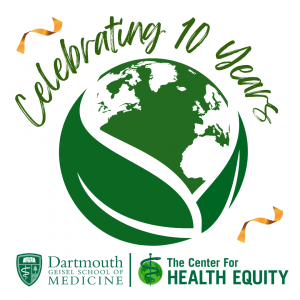
Getting medical students into the community is Shawn O'Leary's passion. As director of Multicultural Affairs and academic advisor to the Urban Health Scholars program at Geisel, O'Leary keeps students connected to community service. Or, as he puts it, he gives them an opportunity "to work on the social determinants of health."
O'Leary and Dr. Joseph O'Donnell ('71), the senior advising dean and a professor of medicine, select several first-year students each year to be Urban Health Scholars; students stay on as scholars until they graduate. Getting first-year students exposed to urban health is crucial, O'Leary believes. "If we can capture [them] at this critical stage of their medical career development, I feel like we can develop an interest and foster that interest, and keep them in that kind of work," he says.
The program begins with a cultural immersion tour in the Boston area that includes working with youth groups and visits to community health centers. The tour ends with a full day at the Mattapan Health Care Revival, an enormous outdoor clinic at the Mattapan, Mass., Community Health Center, where thousands of people receive free health screenings and health education.
O'Leary oversees numerous other student activities. Lifelines, an art and literary journal edited by Geisel students, began with guidance from O'Leary. He also fostered the Medical Spanish Initiative started by two first-year scholars who had done volunteer work in South America. The program provides resources and community events for learning Spanish medical terminology.
A portion of O'Leary's job he is especially proud of is organizing the Geisel program at Dartmouth's annual Martin Luther King, Jr., celebration. In his first program, "HIV in the Black Community," he was instrumental in setting up free HIV/AIDS testing in communities in New Haven, Conn.; Boston; and Manchester, N.H.
As a member of the Bois Forte Band of Ojibwe in Northern Minnesota, O'Leary enjoys taking Geisel students to Ojibwe reservations to learn about community-health programs. This past March, 16 first-year medical students traveled with him to four different Ojibwe reservations. The students work with physicians and a variety of health-care providers at both tribal and Indian Health Service facilities.
Most useful, he thinks, is the students' chance to shadow community-health representatives who take care of patients in their homes. "Students come back with a different perspective on health," says O'Leary, who has led Geisel educational experiences to the Minnesota reservations the past three years.
